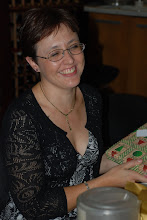Over the last year or so, I have been fortunate enough to meet people from around the world, including Japan, Pakistan, India, Jordan, France, USA, Australia and Syria amongst others.
Our language of conversation is English, though in bigger groups you will hear smatterings of Japanese, French, Urdu, Arabic and occasionally even Afrikaans! Our kids all play together happily, and their language of conversation is English. Just English.
While Arabic may be the official language of the UAE, English is widely spoken, and is pretty essential for business dealings. We are all happy that our children are learning English, and are playing together using English.
But there is a sprinkling of sadness. For with the loss of their home languages, comes a certain loss of culture.
A Japanese mom said to me recently that her daughter is talking less and less Japanese these days, and "thinks" in English. And while she encourages her child to speak Japanese at home, English is her daughter's language of choice.
A Pakistani mom, who was brought up in the UK, speaks Urdu, her home language, but has been unable to teach it to her children. Urdu is a complex language, and even she says she is losing the ability to understand it in its entirety.
Another Pakistani mom, whose children were educated in Canada, says that her children will never understand the beauty of Urdu poetry, as their understanding of the language is limited. They choose to speak English at home.
We are English-speaking South Africans, but I know two official languages. My daughter, when we return home, will only know one. She will also be completely fluent in Arabic, but that is not going to help her.
I would love to be able to teach her Afrikaans (which I know), or perhaps even Xhosa or Zulu. But I am not proficient enough in any of those to teach her, and when we come home, she may be at a disadvantage. I have never realised until now how intrinsically linked language and culture are. Intertwined, expressing thoughts, emotions, poetry, literature, tradition.
My daughter will not quite understand what "lekker" means, or what it means to say "aiesh." Words that are not English, but yet completely South African. When her teacher is sick, she's not ill, she's poorly. When she's cold, she needs a jumper, not a jersey. I am often "mum" and not "mom." My little one says "yeah" and not "ja."
While its great that our children, from all over the world, are able to converse freely and openly, in our expat environment, its also sad. That with a global language, comes a loss of local colour.
Saturday, June 13, 2009
Subscribe to:
Post Comments (Atom)

No comments:
Post a Comment